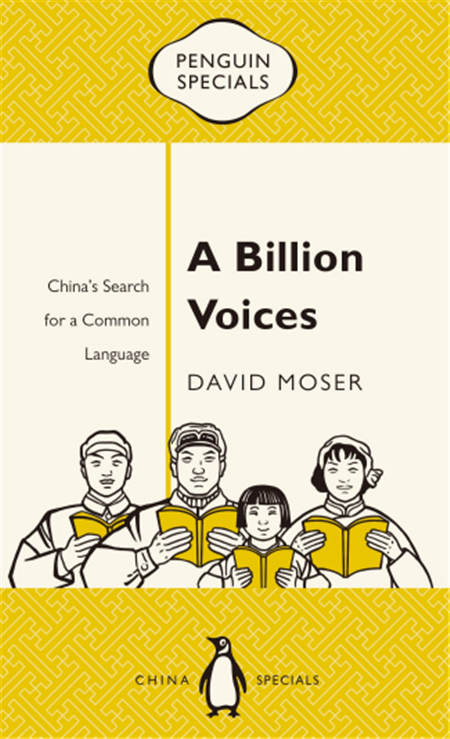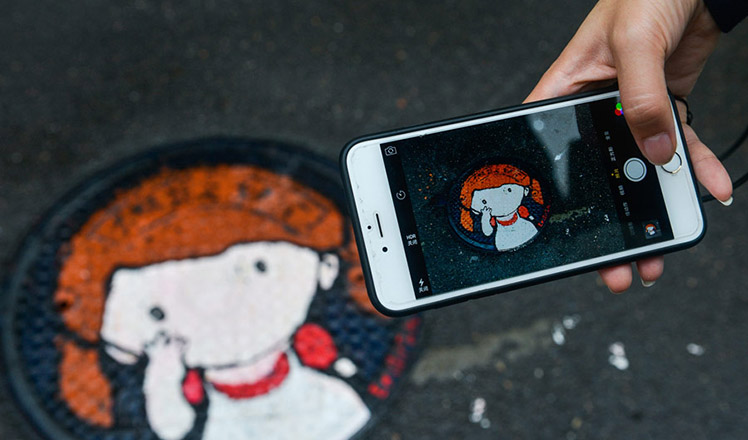US linguist's e-book looks at evolution of Mandarin
Updated: 2016-07-20 07:47
By Xing Yi(China Daily)
|
||||||||
 |
|
[Photo provided to China Daily] |
During the 1930s, such a project of Romanizing Chinese characters was even put into practice in Yan'an, where there were around 300 publications with a phonetic system called Latinxua Sin Wenz, or Latinized New Writing, circulating in the area.
When American journalist Edgar Snow visited China in 1936, he even found that the Communist Party of China had already published a pocket dictionary of the phonetic system of Chinese, and was experimenting with teaching it to a class of young students.
But the method lasted for a very brief period of time. It was abolished completely in 1955.
What wins out among plans to Romanize Chinese language is pinyin, which literally translates as "spelled sounds". It is used to denote the sound of each Chinese character using English alphabet and four diacritics for tones.
Besides the reform in the writing system, Moser also traces the little-known process of how people unified over 100 of so-called dialects into what is widely used now-Putonghua, or the common speech.
Moser captures the tensions between Putonghua and dialects, because some of the dialects could be arguably considered as another language.
Many dialects are dying out as there are fewer people speaking them nowadays.
Near the end of the book, Moser also touches upon how the internet has been affecting the Chinese language: A lot of internet slang and a mixture of foreign and Chinese compounds have emerged, and they are used by young people.
Moser says tracing the reform of Chinese language along the way is a process for foreign learners to understand how Chinese works.
Almost 25 years ago, five years after Moser began to learn Chinese, he wrote an article titled Why Chinese Is So Damn Hard. The article is still popular among foreign Chinese learners.
"Yes, Chinese is still hard, but (now) we have digital tools and dictionary to help us learn it," says Moser.
- Endangered elephants relocated by crane in Africa
- THAAD news met by DPRK missile launches
- DPRK top leader guides ballistic rocket test-firing
- Turkey's failed coup to further consolidate Erdogan's power
- Boris Johnson says UK not abandoning leading role in Europe
- Armed man attacked passengers on a train in Germany

 Heavy rain, floods across China
Heavy rain, floods across China
 Super-sized class has 3,500 students for postgraduate exam
Super-sized class has 3,500 students for postgraduate exam
 Luoyang university gets cartoon manhole covers
Luoyang university gets cartoon manhole covers
 Top 10 largest consumer goods companies worldwide
Top 10 largest consumer goods companies worldwide
 Taiwan bus fire: Tour turns into sad tragedy
Taiwan bus fire: Tour turns into sad tragedy
 Athletes ready to shine anew in Rio Olympics
Athletes ready to shine anew in Rio Olympics
 Jet ski or water parasailing, which will you choose?
Jet ski or water parasailing, which will you choose?
 Icebreaker Xuelong arrives at North Pacific Ocean
Icebreaker Xuelong arrives at North Pacific Ocean
Most Viewed
Editor's Picks

|

|

|

|

|

|
Today's Top News
Ministry slams US-Korean THAAD deployment
Two police officers shot at protest in Dallas
Abe's blame game reveals his policies failing to get results
Ending wildlife trafficking must be policy priority in Asia
Effects of supply-side reform take time to be seen
Chinese State Councilor Yang Jiechi to meet Kerry
Chinese stocks surge on back of MSCI rumors
Liang avoids jail in shooting death
US Weekly

|

|








